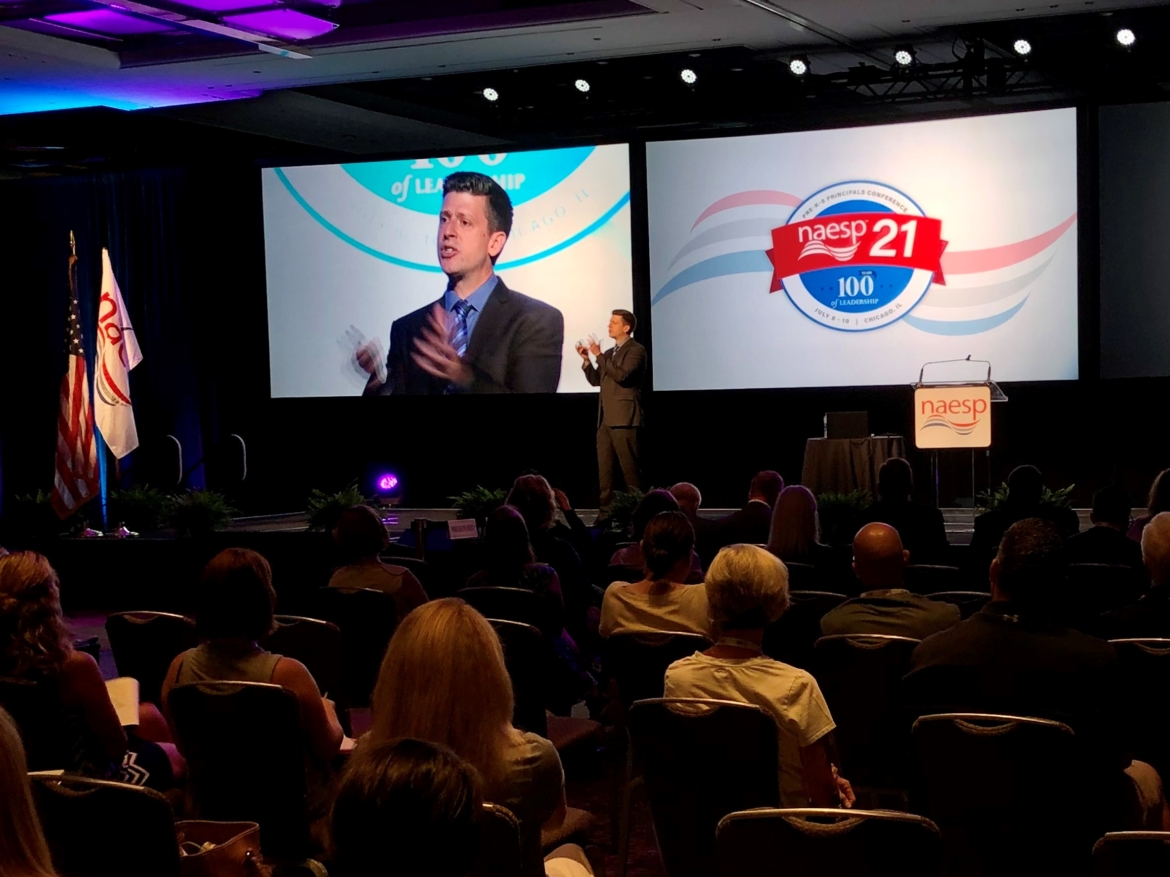Dan Heath: Preventing Crises in Schools Before They Happen
In his closing keynote address, innovative business thought leader Dan Heath inspired attendees to think upstream, identifying—and solving—the issues schools struggle with before they become bigger problems.

Closing keynote speaker Dan Heath, author of Upstream and innovative business thought leader, brought high energy, research-based tools, and knowledge bomb after knowledge bomb as he detailed the basis for thinking upstream—preventing crises before they happened.
“The problem with smoke detectors is that they don’t put out the fire. Warning systems must be in place, but so must a layered plan to address the root cause of the fire.”
Questions for Upstream Leaders
So how do you—a school principal or assistant principal—pave the way to encourage upstream thinking in your school ecosystem? Heath says it starts with these seven questions:
- How will you unite the right people?
- How will you change the system?
- How will you avoid doing harm?
- How will you get early warning of the problem?
- Where can you find a point of leverage?
- How will you know you’re succeeding?
- Who will pay for what does not happen?
Addressing the Problem in Layers
Getting close to the problem is a starting point, said Heath, noting that macro success starts with micro work. Often, in school systems, issues persist year after year because “that’s always how it’s been done” or because of a lack of ownership over the issues, leaving them to fall through the cracks. But the good news, he said: You might not be the ones who created the problem, but you can be the ones who fix it.
Address the problem in layers—emergency response, prepared response, early detection, and prevention—to move from downstream thinking to upstream leading.
“Upstream victories are stories written in data, starring invisible heroes who save invisible victims,” he said. “Behavior is contagious. Attitudes are contagious. Inaction is contagious.”
What will you accomplish as an upstream leader? Here’s what a few principals have to say on the subject.
“There are no crises unless you look at your challenges that way. Moving forward, schools need to hold onto the effective practices learned over the past year and re-establish teaching norms and relationship expectations at the beginning of the year.”—Christopher Wooleyhand, Maryland
“I feel that we are in a position with flexibility and funding to prevent most problems, but I am concerned about the new funding ending after two school years. We can deal without the programs, but losing newly hired staff that we grow accustomed to utilizing will be difficult.”—Marla Turpin, Georgia
“So much is just below the surface at all times! The one that I anticipate being closest is how we need to consciously lean into being mindful of addressing cultural and racial inequities within our district and community. That learning begins with much introspection and recognizing inequity, bias, stereotypes that are a part of the larger system. The ‘bootstraps narrative’ is powerful to combat and pushback can be as strong as the need to address it on behalf of our students, underrepresented community members, and society as a whole. This is hard heart work as a leader!”—Jessica Hutchinson, Illinois


